Economic Update (8 Jul 2020)
Rishi Sunak The Chancellor of the Exchequer
I stood here in March saying I knew people were worried, and I know they are worried still. We have taken decisive action to protect our economy, but people are anxious about losing their job and about unemployment rising. We are not just going to accept that. People need to know that we will do all we can to give everyone the opportunity of good and secure work. People need to know that although hardship lies ahead, no one will be left without hope. So today, we act with a plan for jobs. Our plan has a clear goal: to protect, support and create jobs. It will give businesses the confidence to retain and hire, to create jobs in every part of our country, to give young people a better start and to give people everywhere the opportunity of a fresh start. Where problems emerge, we will confront them. Where support is justified, we will provide it. Where challenges arise, we will overcome them. We entered this crisis unencumbered by dogma and we continue in that spirit, driven always by the simple desire to do what is right.
Before I turn to our plan for jobs, let me first outline the nature of the challenge. Our economic response to coronavirus is moving through three phases. In the first phase, beginning in March, the Government announced social distancing measures and ordered businesses to close, halting the spread of the disease. We put in place one of the largest and most comprehensive economic responses in the world. Our £160 billion plan protects people’s jobs, incomes and businesses. We supported more than 11 million people and jobs through the job retention and self-employment schemes, alongside billions of pounds for the most vulnerable. We supported over 1 million businesses to protect jobs through tax cuts, tax deferrals, direct cash grants and over 1 million Government-backed loans. And we supported public services, with new funding for the NHS, schools, public transport and local authorities. In total, we have now provided £49 billion to support public services since this crisis began.
Analysis I am publishing today shows our interventions significantly protected people’s incomes, with the least well off in society supported the most, and this crisis has highlighted the special bond which holds our country together. Millions of people in Scotland, Wales and Northern Ireland have been protected by the UK Government’s economic interventions, and they will be supported by today’s plan for jobs. No nationalist can ignore the undeniable truth: this help has only been possible because we are a United Kingdom.
Four months on, as we carefully reopen our economy, we are entering the second phase of our economic response. Despite the extraordinary support we have already provided, we face profound economic challenges. World economic activity has slowed, with the International Monetary Fund expecting the deepest global recession since records began. Household consumption—the biggest component of our economy—has fallen steeply. Businesses have stopped trading and stopped hiring. Taken together, in just two months our economy contracted by 25%, the same amount that it grew by in the previous 18 years. And the independent Office for Budget Responsibility and Bank of England are both projecting significant job losses, the most urgent challenge we now face. I want every person in this House and in the country to know that I will never accept unemployment as an unavoidable outcome. We have not done everything we have so far just to step back now and say, “Job done.” In truth, the job has only just begun.
If the first phase of our economic response was about protection and the second phase—the phase we are addressing today—is about jobs, there will come a third phase, where we will rebuild. My right hon. Friend the Prime Minister has set out our vision to level up, unite the country, spread opportunity, and repair and heal the wounds exposed through this crisis. I can tell the House that we will produce a Budget and spending review in the autumn.
And we will deal, too, with the challenges facing our public finances. Over the medium term, we must, and we will, put our public finances back on a sustainable footing. In other words, our plan for jobs will not be the last action, but is merely the next, in our fight to recover and rebuild after coronavirus.
Let me now turn to the detail of our plan for jobs. Central to our economic response has been the jobs retention scheme. Furlough has been a lifeline for millions, supporting people and businesses to protect jobs, but it cannot, and should not, go on forever. I know that when furlough ends it will be a difficult moment. I am also sure that if I say the scheme must end in October, critics will say it should end in November. If I say it should end in November, critics will just say December. But the truth is, calling for endless extensions to the furlough is just as irresponsible as it would have been, back in June, to end the scheme overnight.
We have to be honest: leaving the furlough scheme open forever gives people false hope that it will always be possible to return to the jobs they had before. The longer people are on furlough, the more likely it is that their skills will fade, and they will find it harder to get new opportunities. It is in no one’s long-term interests for the scheme to continue forever, least of all those trapped in a job that can exist only because of Government subsidy. So the furlough will wind down, flexibly and gradually, supporting businesses and people through to October.
While we cannot protect every job, one of the most important things we can do to prevent unemployment is to get as many people as possible from furlough back to their jobs. So, today, we are introducing a new policy to reward and incentivise employers who successfully bring furloughed staff back—a new jobs retention bonus.
If you are an employer and you bring back someone who was furloughed, and you continuously employ them through to January, we will pay you a £1,000 bonus per employee. It is vital that people are not just returning for the sake of it; they need to be doing decent work. For businesses to get the bonus, the employee must be paid at least £520, on average, in each month from November to January, the equivalent of the lower earnings limit in national insurance.
The House should understand the significance of this policy. We will pay the bonus for all furloughed employees. So if employers bring back all 9 million people who have been furloughed, that would be a £9 billion policy to retain people in work. Our message to business is clear: if you stand by your workers, we will stand by you.
The furlough was the right policy to support people through the first phase of this crisis, but now, in this new phase, we need to evolve our approach. Today, I want to set out for the House a new three-point plan for jobs. We need to: first, support people to find jobs; secondly, create jobs; and, thirdly, protect jobs.
Let me start with supporting jobs, in particular the help we want to provide for those who will be hardest hit by this crisis: younger people. Over 700,000 people are leaving education this year. Many more are just starting out in their careers. Coronavirus has hit them hard—under-25s are two and a half times as likely to work in a sector that has been closed.
We cannot lose that generation, so today I am announcing the kick-start scheme, a new programme to give hundreds of thousands of young people in every region and every nation of Britain the best possible chance of getting on and getting a job. The kick-start scheme will pay employers directly to create new jobs for any 16 to 24-year-old at risk of long-term unemployment. These will be new jobs, with the funding conditional on the firm proving that the jobs are additional. These will be decent jobs, with a minimum of 25 hours per week paid at least the national minimum wage, and they will be good-quality jobs, with employers providing kick-starters with training and support to find a permanent job.
If employers meet those conditions, we will pay young people’s wages for six months, plus an amount to cover overheads. That means, for a 24-year-old the grant will be around £6,500. Employers can apply to be part of the scheme from next month, with the first kick-starters in their new jobs this autumn. I urge every employer, big or small, national or local, to hire as many kick-starters as possible. Today, I am making available an initial £2 billion, enough to fund hundreds of thousands of jobs, and I commit: there will be no cap on the number of places available.
We can do more for young people. Traineeships are a proven scheme to get young people ready for work, and we know they work, so for the first time ever we will pay employers £1,000 to take on new trainees, with triple the number of places. What is more, to help 18 to 19-year-olds leaving school or college to find work in high-demand sectors, such as engineering, construction and social care, we will provide £100 million to create more places on level 2 and 3 courses.
The evidence says that careers advice works, too, so we will fund it, with enough new careers advisers to support over a quarter of a million more people. We will also expand our universal skills offer. Sector-based work academies provide training, work placements and a guaranteed job interview in high-demand sectors, and the evidence shows they work, so we will expand them, by tripling the number of places.
We know that apprenticeships work, too, with 91% of apprentices staying in work or doing further training afterwards, so for the next six months we will pay employers to create new apprenticeships. We will pay businesses to hire young apprentices, with a new payment of £2,000 per apprentice, and introduce a brand new bonus for businesses to hire apprentices aged 25 and over, with a payment of £1,500. I thank my right hon. Friend the Education Secretary for his support and commitment in developing these measures.
We know that the longer someone is out of work, the harder it is for them to return. Millions of people are moving on to universal credit and need urgent support to get back to work, so we are doubling the number of work coaches in jobcentres, increasing the flexible support fund, extending the rapid response service, expanding the work and health programme, and developing a new scheme to support the long-term unemployed. The academic and economic evidence tells us these are among the most effective things we can do.
For that reason, I am investing an extra £1.2 billion in the Department for Work and Pensions to support millions of people back to work, and I am grateful for everything my right hon. Friend the Work and Pensions Secretary and her incredible team have done. I am talking about £1 billion of support for the unemployed, more money for skills, traineeships, apprenticeships, and a new, good-quality job for hundreds of thousands of new kick-starters. That is the first part of our plan for jobs.
The second part of our plan is to support job creation, and that begins with historic investment in infrastructure to create jobs in every region and nation of the UK. At the Budget, I announced £88 billion of capital funding this year, and last week the Prime Minister announced our plans to accelerate £5 billion of additional investment projects. We are doubling down on our ambition to level up, with better roads, better schools, better hospitals and better high streets, creating jobs in all four corners of the country.
As well as investing in infrastructure, we want to create green jobs. This will be a green recovery, with concern for our environment at its heart, and as part of that, I am announcing today a new £2 billion green homes grant. From September, homeowners and landlords will be able to apply for vouchers to make their homes more energy efficient and create local jobs. The grants will cover at least two thirds of the cost—up to £5,000 per household—and for low-income households we will go even further, with vouchers covering the full cost, up to £10,000.
On top of the £2 billion voucher scheme, I am releasing £1 billion of funding to improve the energy efficiency of public sector buildings, alongside a £50 million fund to pilot the right approach to decarbonise social housing. Taken together, we expect these measures to make more than 650,000 homes more energy efficient; to save households up to £300 a year on their bills; to cut carbon by more than half a megatonne per year—equivalent to taking 270,000 cars off the road; and, most importantly right now, to support around 140,000 green jobs. A £3 billion green jobs plan to save money, cut carbon and create jobs.
One of the most important sectors for job creation is housing. The construction sector adds £39 billion a year to the UK economy. House building alone supports nearly three quarters of a million jobs, with millions more relying on the availability of housing to find work. But property transactions fell by 50% in May. House prices have fallen for the first time in eight years and uncertainty abounds in the market—a market we need to be thriving. We need people feeling confident—confident to buy, sell, renovate, move and improve. That will drive growth. That will create jobs. So to catalyse the housing market and boost confidence, I have decided today to cut stamp duty.
Right now, there is no stamp duty on transactions below £125,000. Today, I am increasing the threshold to half a million pounds. This will be a temporary cut running until 31 March next year, and, as is always the case, these changes to stamp duty will take effect immediately. The average stamp duty bill will fall by £4,500 and nearly nine out of 10 people buying a main home this year will pay no stamp duty at all. Stamp duty cuts, a £5,000 green homes grant and tens of billions of pounds of new capital projects—we are creating jobs: the second part of our plan for jobs.
The final part of our plan will protect jobs that already exist by helping some of our highest-employing but hardest-hit sectors: hospitality and tourism. Our economy relies on consumption, especially social consumption: the pubs, cafés, restaurants, hotels and B&Bs that bring life to our villages, towns and cities. Taken together, these sectors employ over 2 million people—disproportionately younger, women and people from black, Asian and minority ethnic communities. Many rural and coastal communities rely on these industries. Some 80% of hospitality firms temporarily stopped trading in April and 1.4 million workers have been furloughed—the highest proportions of any sector. So the best jobs programme we can do is to restart these sectors and get our pubs, restaurants, cafés and B&Bs bustling again.
I know people are cautious about going out, but we would not have lifted the restrictions if we did not think we could do so safely. I have seen in the last few weeks how hard businesses are working to make their premises safe, and if we follow the guidance and respect what they ask us to do, we can all enjoy summer safely. In turn, we need to give these businesses the confidence to know that if they open up, invest in making their premises safe and protect jobs, demand will be there—and be there quickly. So today, I am announcing two new measures to get these sectors moving and protect jobs.
First, at the moment, VAT on hospitality and tourism is charged at 20%, so I have decided, for the next six months, to cut VAT on food, accommodation and attractions. Eat-in or hot takeaway food from restaurants, cafés and pubs; accommodation in hotels, B&Bs, campsites and caravan sites; attractions like cinemas, theme parks and zoos—all these and more will see VAT reduced, from next Wednesday until 12 January, from 20% to 5%. This is a £4 billion catalyst for the hospitality and tourism sectors, benefiting over 150,000 businesses and consumers everywhere—all helping to protect 2.4 million jobs.
But we will go further. The final measure I am announcing today has never been tried in the UK before. This moment is unique. We need to be creative. So, to get customers back into restaurants, cafés and pubs and protect the 1.8 million people who work in them, I can announce today that, for the month of August, we will give everyone in the country an eat-out-to-help-out discount. Meals eaten at any participating business, Monday to Wednesday, will be 50% off, up to a maximum discount of £10 per head for everyone, including children. Businesses will need to register and can do so through a simple website, open next Monday. Each week in August, businesses can then claim the money back, with the funds in their bank account within five working days. Some 1.8 million people work in this industry. They need our support, and with this measure, we can all eat out to help out. A VAT cut to 5% and a first-of-its-kind Government-backed discount for all—that is the third part of our plan for jobs.
A £1,000 jobs retention bonus; new, high-quality jobs for hundreds of thousands of young kick-starters; £1 billion to double the number of work coaches and support the unemployed; more apprenticeships, more traineeships and more skills funding; billions of pounds for new job creation projects across the country; a £3 billion plan to support 140,000 green jobs; and, in this vital period, as we get going again, VAT cut, stamp duty cut and meals out cut—all part of our plan for jobs worth up to £30 billion.
Governments, much less people, rarely get to choose the moments that define them. What choice there is comes in how we respond. For me, this has never just been a question of economics, but of values. I believe in the nobility of work. I believe in the inspiring power of opportunity. I believe in the British people’s fortitude and endurance. And it is that value, endurance, more than any other that we need to embody now—a patience to live with the uncertainty of the moment and to find that new balance between safety and normality. We will not be defined by this crisis but by our response to it. It is an unambiguous choice to make this moment meaningful for our country in a way that transcends the frustration and loss of recent months. It is a plan to turn our national recovery into millions of stories of personal renewal. It is our plan for jobs, and I commend it to this House.



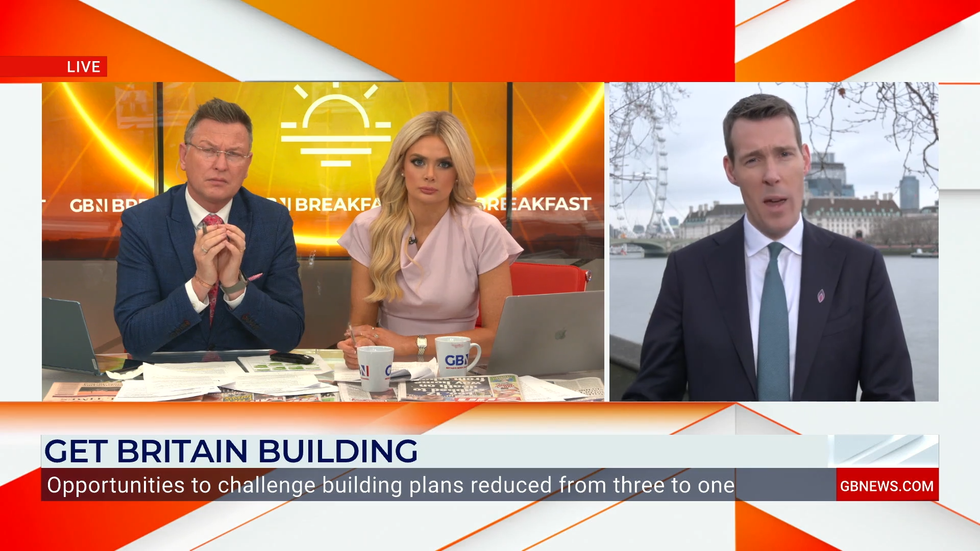
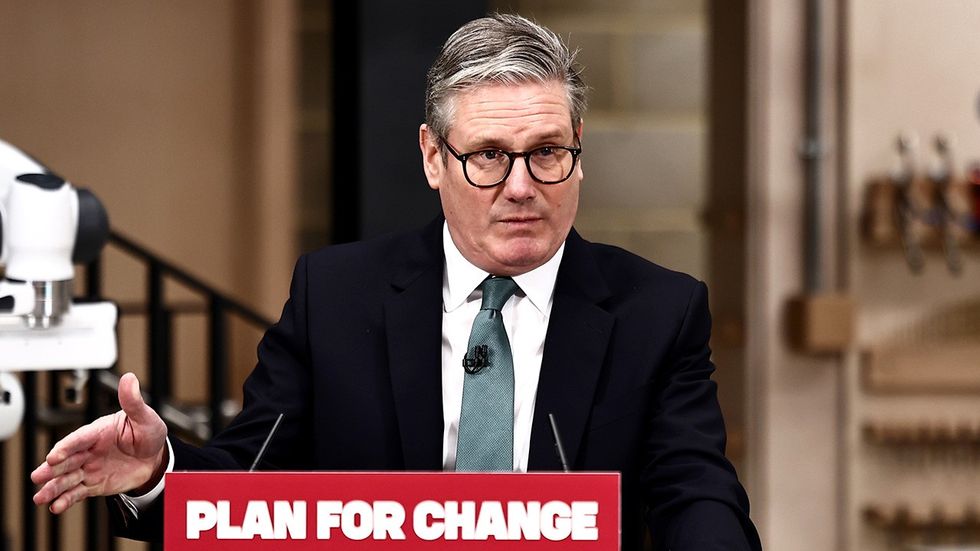
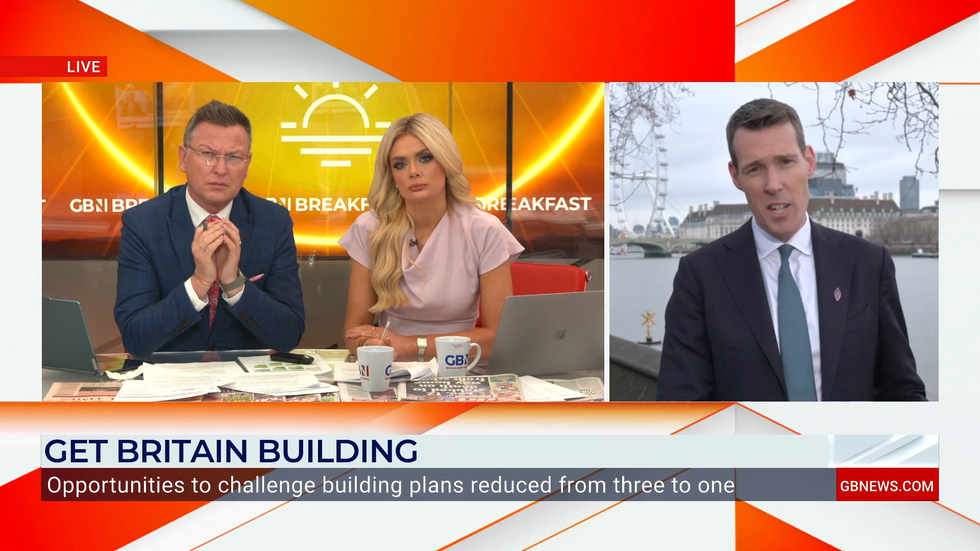
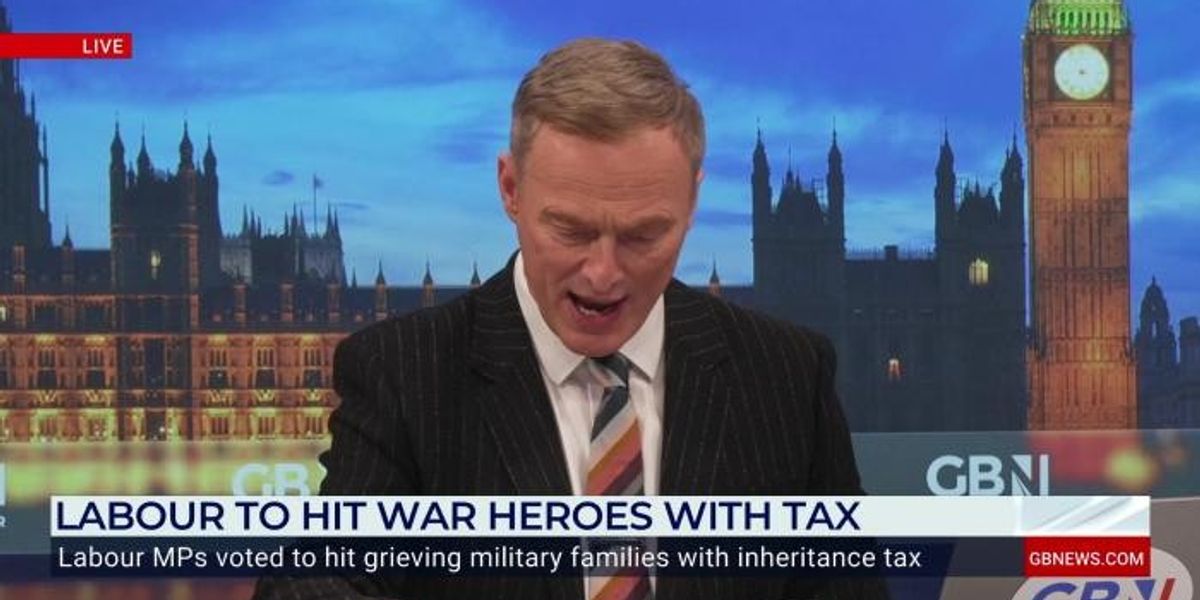

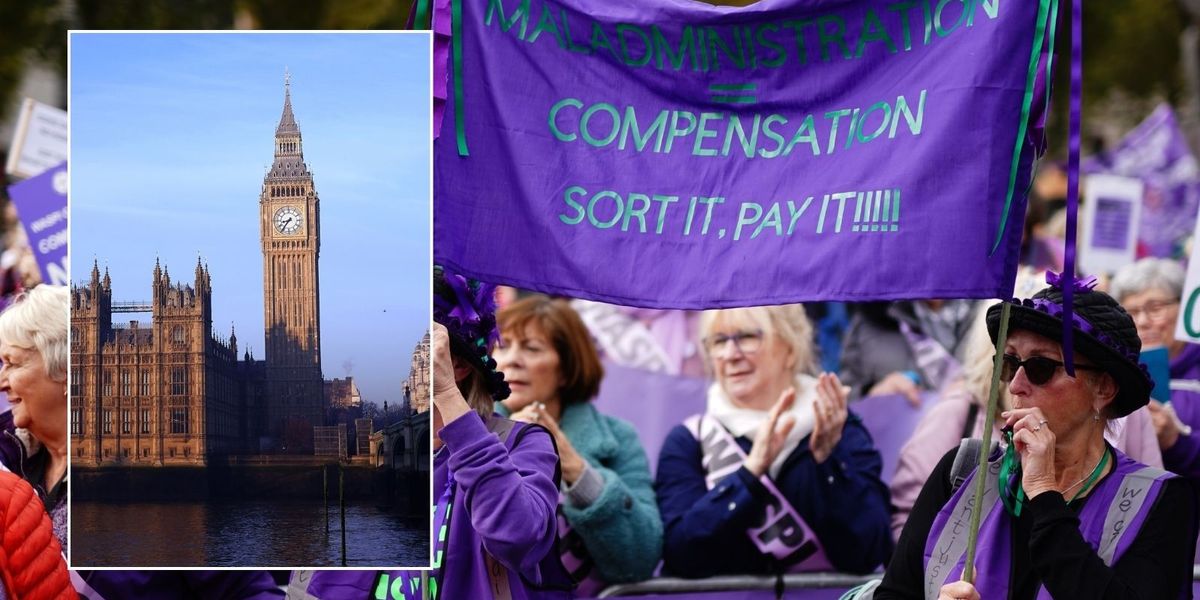
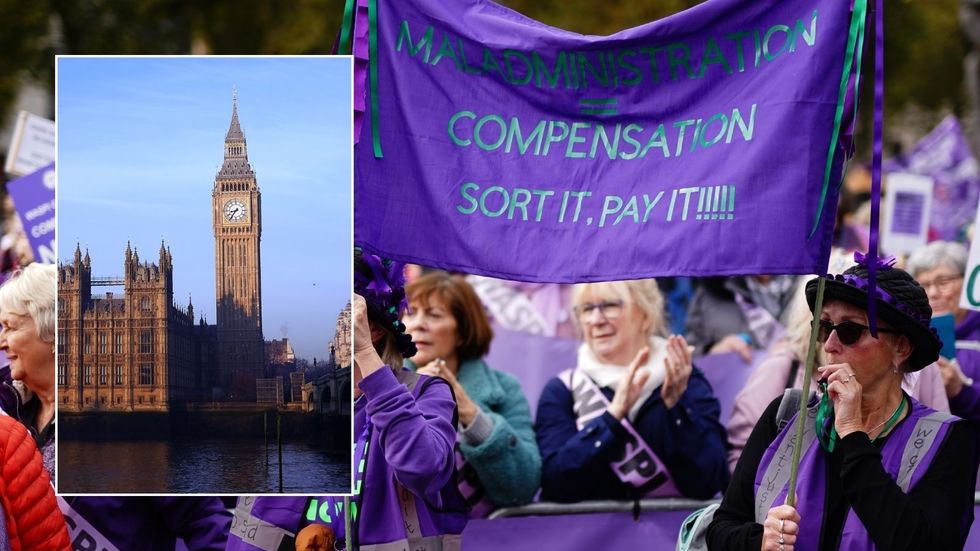


 Axel Rudakubana will be sentenced in court today for the Southport attackCPS/PA
Axel Rudakubana will be sentenced in court today for the Southport attackCPS/PA
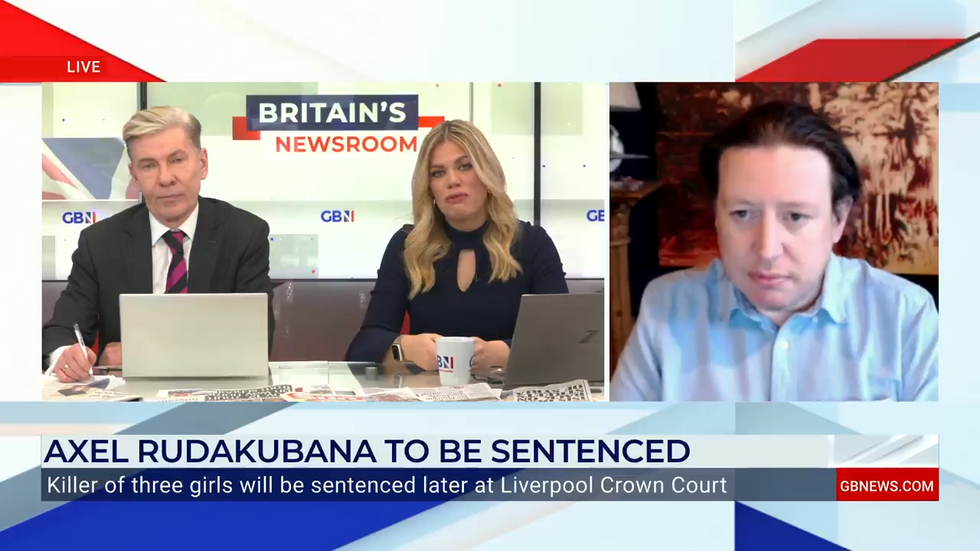


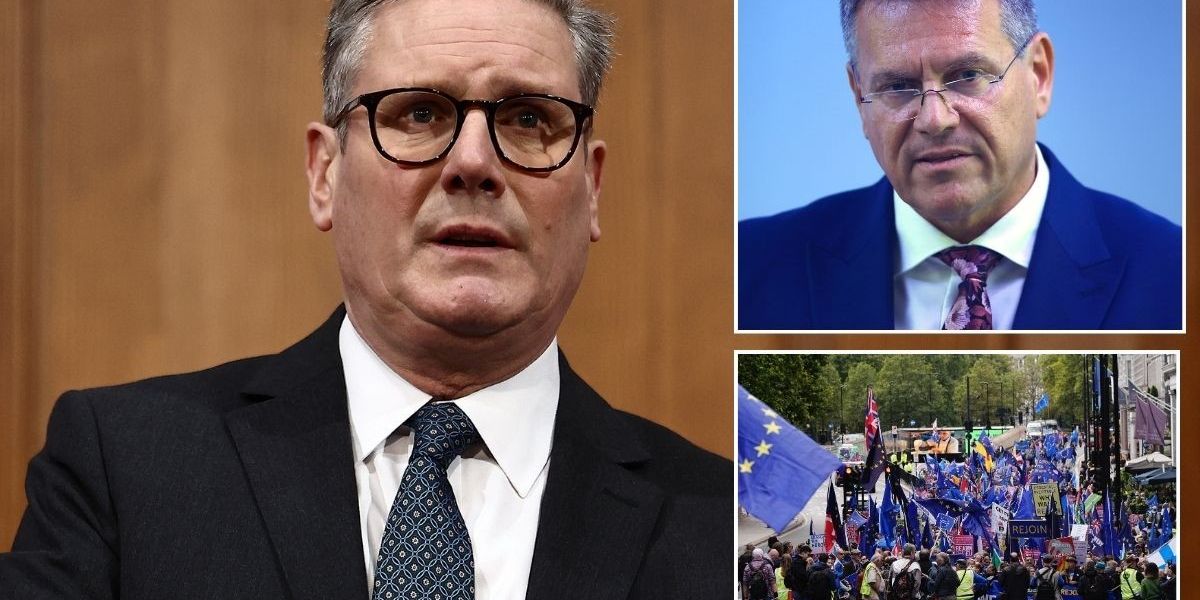
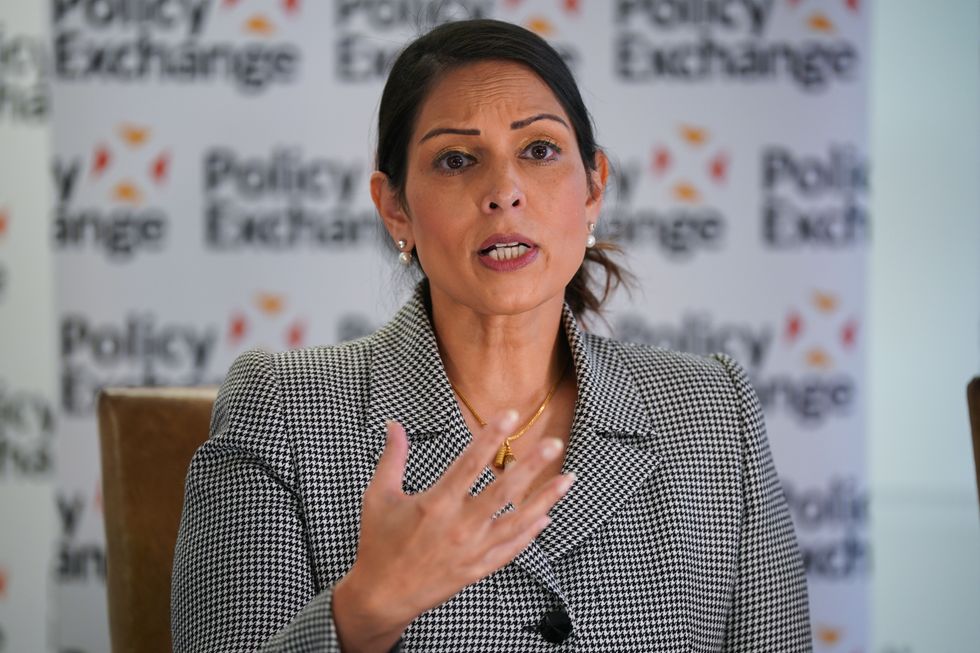
 European Commission vice-president Maros Sefcovic PA
European Commission vice-president Maros Sefcovic PA

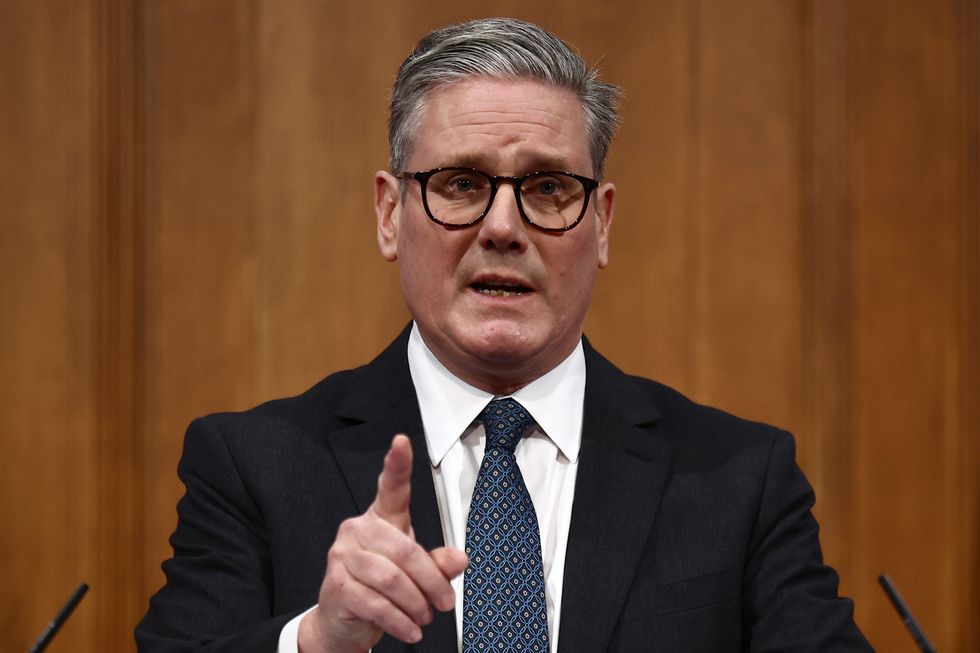



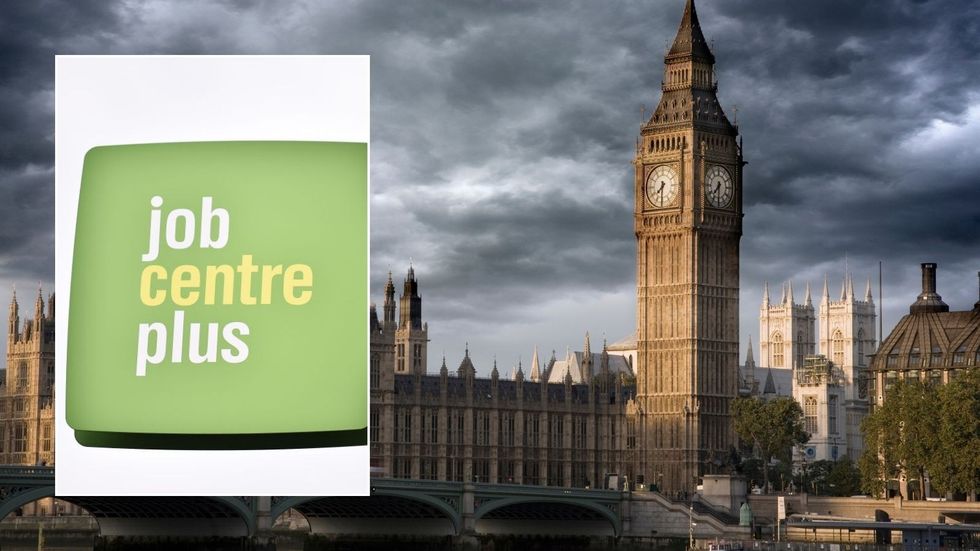
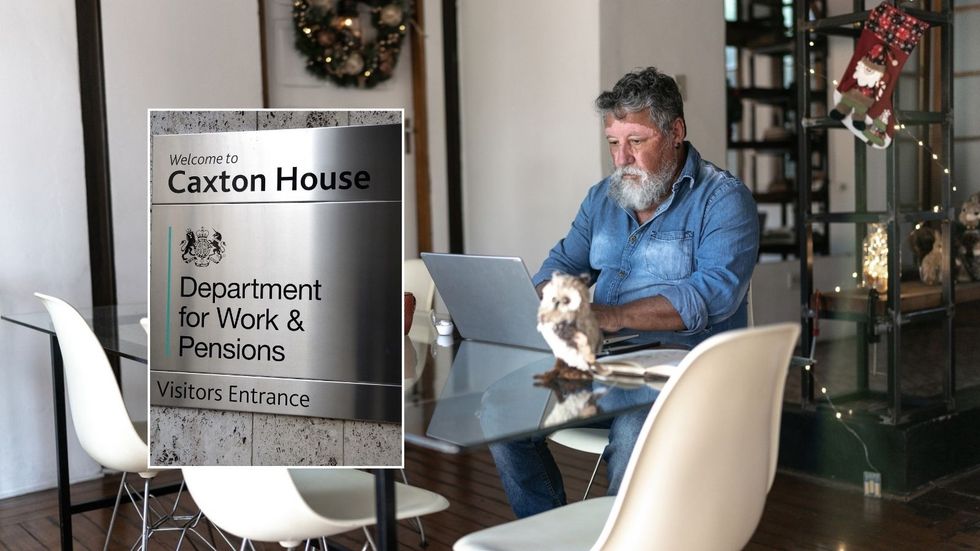
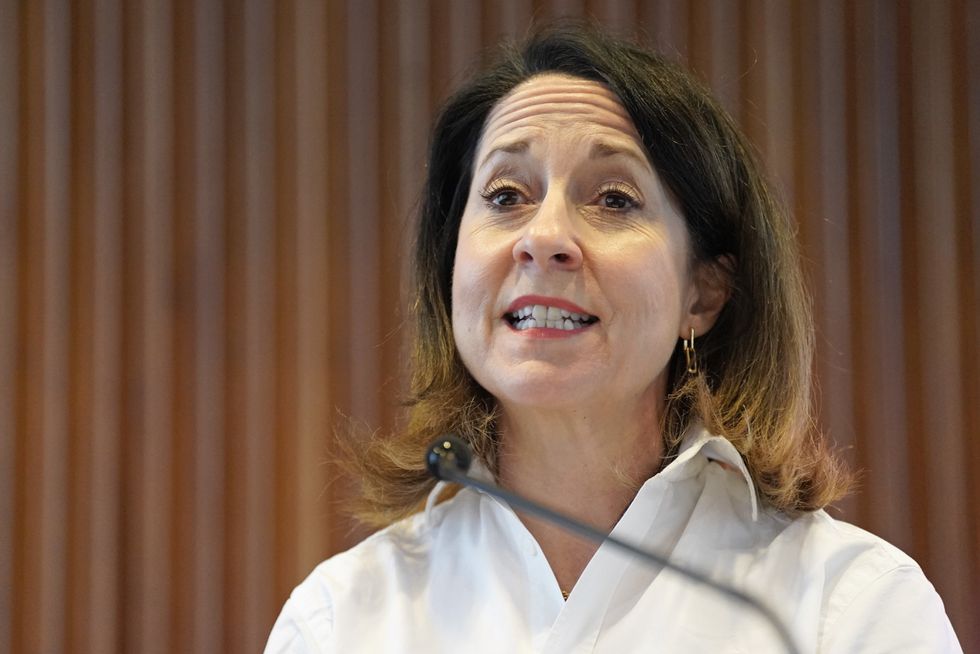
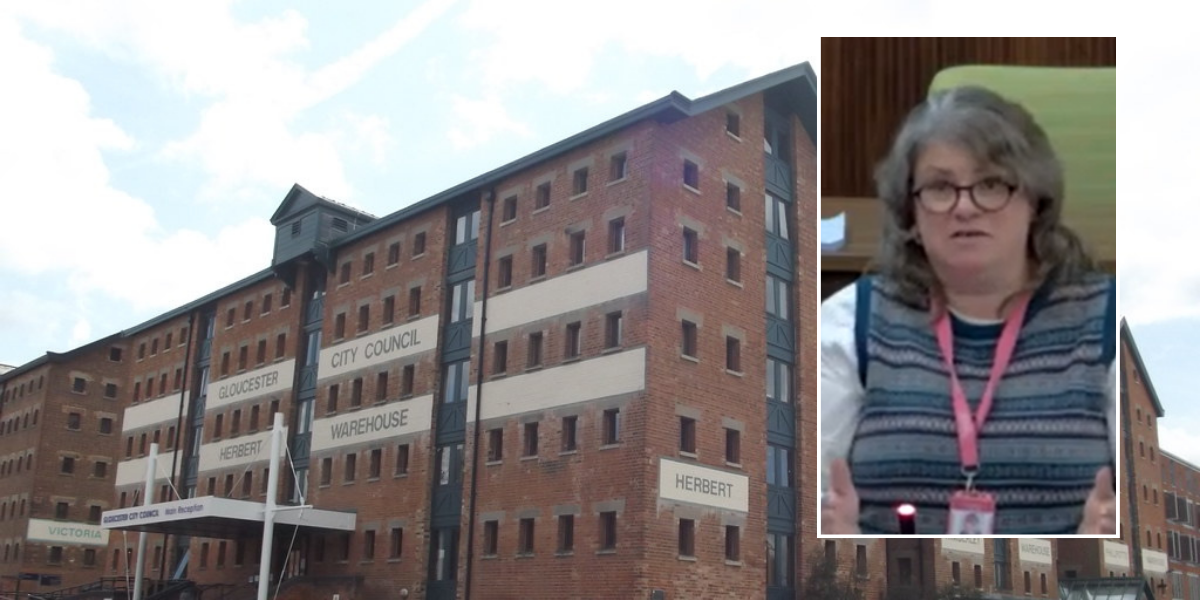
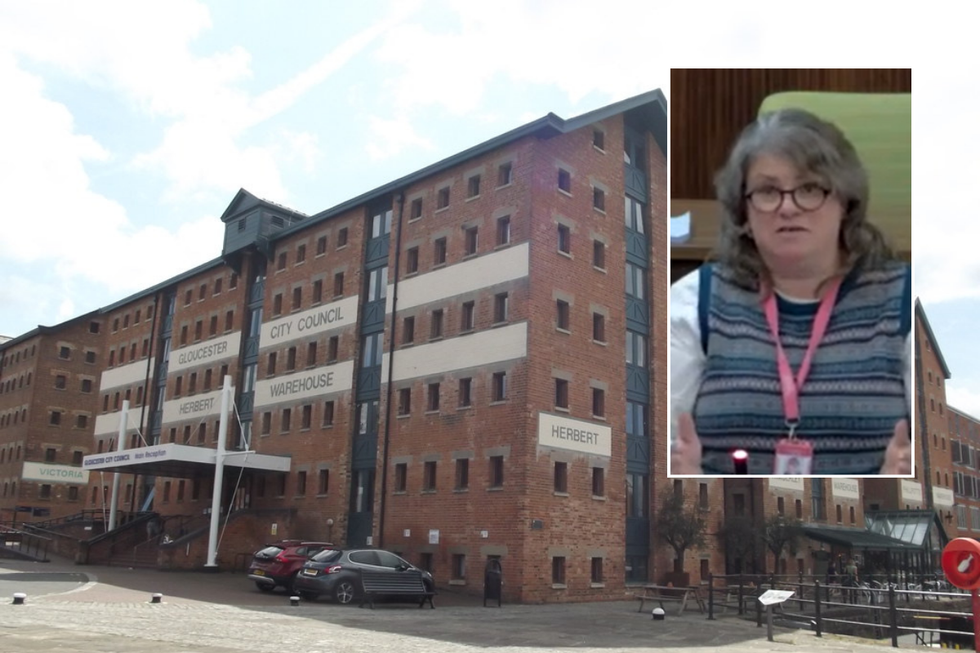
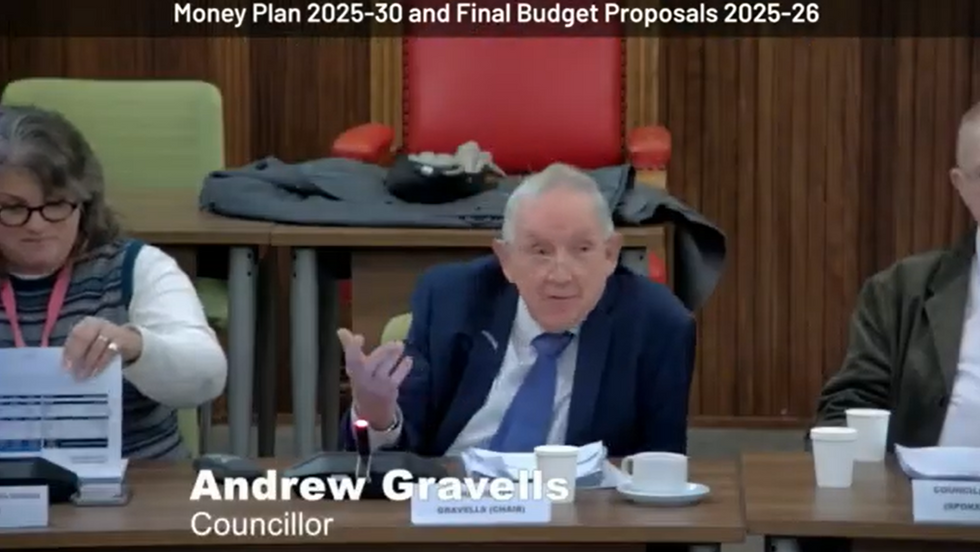
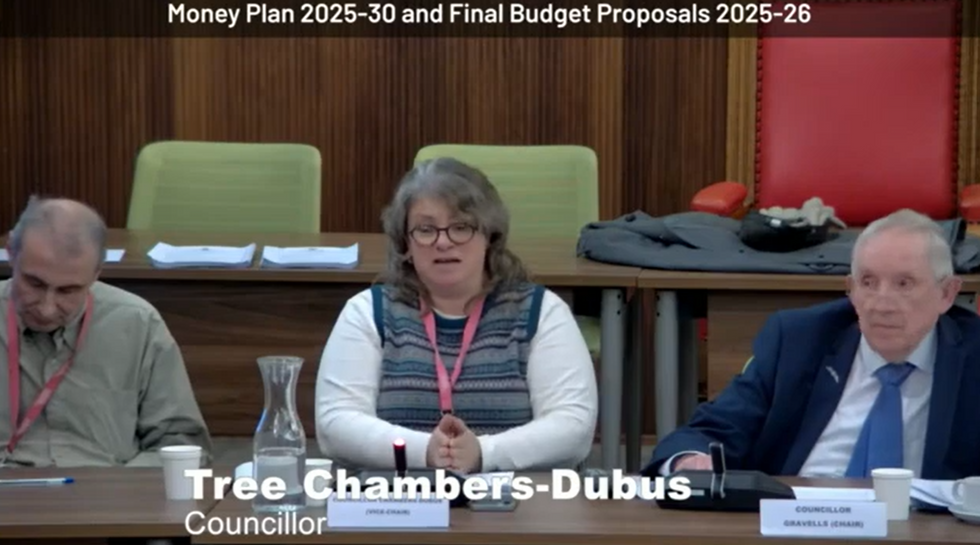
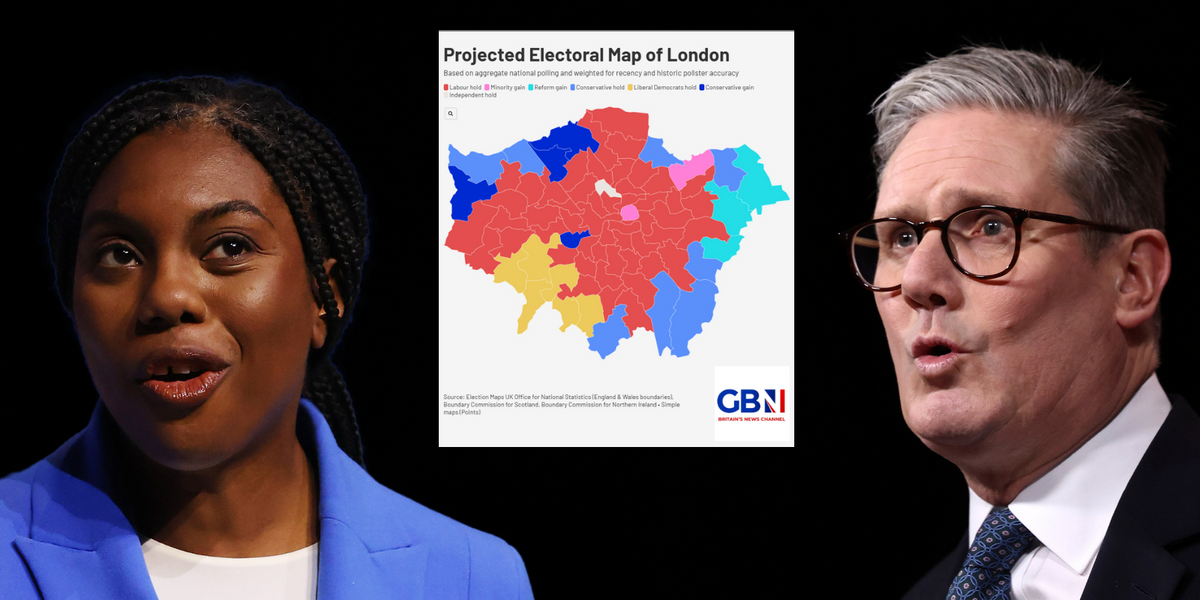
















You must be logged in to post a comment Login